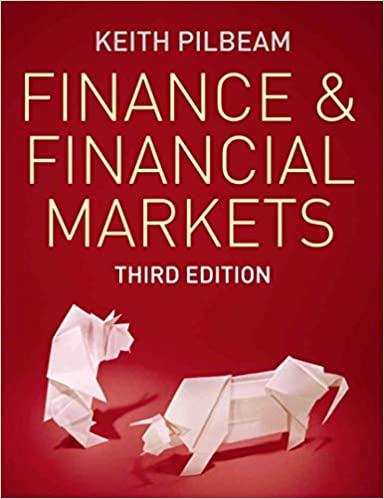Answered step by step
Verified Expert Solution
Question
1 Approved Answer
Islamic Banking Islamic banking refers to a system of banking that complies with Islamic law also known as Shariah law. The underlying principles that govern
Islamic Banking
Islamic banking refers to a system of banking that complies with Islamic law also known as
Shariah law. The underlying principles that govern Islamic banking are mutual risk and profit
sharing between parties, the assurance of fairness for all and that transactions are based on an
underlying business activity or asset.
These principles are supported by Islamic banking's core values whereby activities that cultivate
entrepreneurship, trade and commerce and bring societal development or benefit is encouraged.
Activities that involve interest (riba), gambling (maisir) and speculative trading (gharar) are
prohibited.
Through the use of various Islamic finance concepts such as ijarah (leasing), mudharabah
(profit sharing), musyarakah (partnership), financial institutions have a great deal of flexibility,
creativity and choice in the creation of Islamic finance products. Furthermore, by emphasising
the need for transactions to be supported by genuine trade or business related activities, Islamic
banking sets a higher standard for investments and promotes greater accountability and risk
mitigation.
Islamic finance has grown tremendously since it first emerged in the 1970's. Current global
Islamic financial assets and assets under management have reached USD2.88 trillion with
annual growth of 14% as at December 2019. There are over 1500 Islamic financial institutions
worldwide across 80 countries. According to the Asian Banker Research Group, the world's 100
largest Islamic banks have set an average asset growth rate of 13%.
Malaysia's Islamic finance industry has been in existence for over 30 years. The enactment of
the Islamic Banking Act 1983 enabled the country's first Islamic Bank to be established and
thereafter, with the liberalisation of the Islamic financial system, more Islamic financial
institutions have been established. Malaysia's long track record of building a successful
domestic Islamic financial industry of over 30 years gives the country a solid foundation -
financial bedrock of stability that adds to the richness, diversity and maturity of the financial
system. Presently, Malaysia's Islamic banking assets reached USD 254 billion as at December
2019 with total funds placed with Islamic banks now represent 38.0% of total banking sector
deposits.
Today, Malaysia's Islamic finance continues to grow rapidly, supported by a conducive
environment that is renowned for continuous product innovation, a diversity of financial
institutions from across the world, a broad range of innovative Islamic investment instruments,
a comprehensive financial infrastructure and adopting global regulatory and legal best practices.
Malaysia has also placed a strong emphasis on human capital development alongside the
development of the Islamic financial industry to ensure the availability of Islamic finance talent.
FBA/PFS2253/AUG22
CONFIDENTIAL/3
All of these value propositions have transformed Malaysia into one of the most developed
Islamic banking markets in the world. Rapid liberalisation in the Islamic finance industry,
coupled with facilitative business environment has encouraged foreign financial institutions to
make Malaysia their destination of choice to conduct Islamic banking business. This has created
a diverse and growing community of local and international financial institutions.
Currently, Malaysia has a significant number of full-fledged Islamic banks including several
foreign owned entities; conventional institutions who have established Islamic subsidiaries and
also entities who are conducting foreign currency business. All financial institutions are given
permission to conduct both ringgit and non-ringgit businesses. Malaysia continues to progress
and to build on the industry by inviting foreign financial institutions to establish international
Islamic banking business in Malaysia to conduct foreign currency business.
The domestic Islamic financial institutions may also apply for ICBU, a dedicated division to
conduct foreign currency business. ICBU will also be accorded various tax incentives and
privileges that lead to reduction in the cost of doing business and expedient market entry in
foreign currency Islamic finance business.
Source: Bank Negara Malaysia (2020)
Based on the article;
a. Briefly explain the functions of Islamic banking institutions.
(2 marks)
b. Elaborate the fundamentals elements governing Islamic banking and finance.
(4 marks)
c. Analyze the factors that stimulate the development of Islamic finance in Malaysia.
(10 marks)
d. Explain the benefits offered by Islamic financial institutions to their customers.
Step by Step Solution
There are 3 Steps involved in it
Step: 1

Get Instant Access to Expert-Tailored Solutions
See step-by-step solutions with expert insights and AI powered tools for academic success
Step: 2

Step: 3

Ace Your Homework with AI
Get the answers you need in no time with our AI-driven, step-by-step assistance
Get Started


